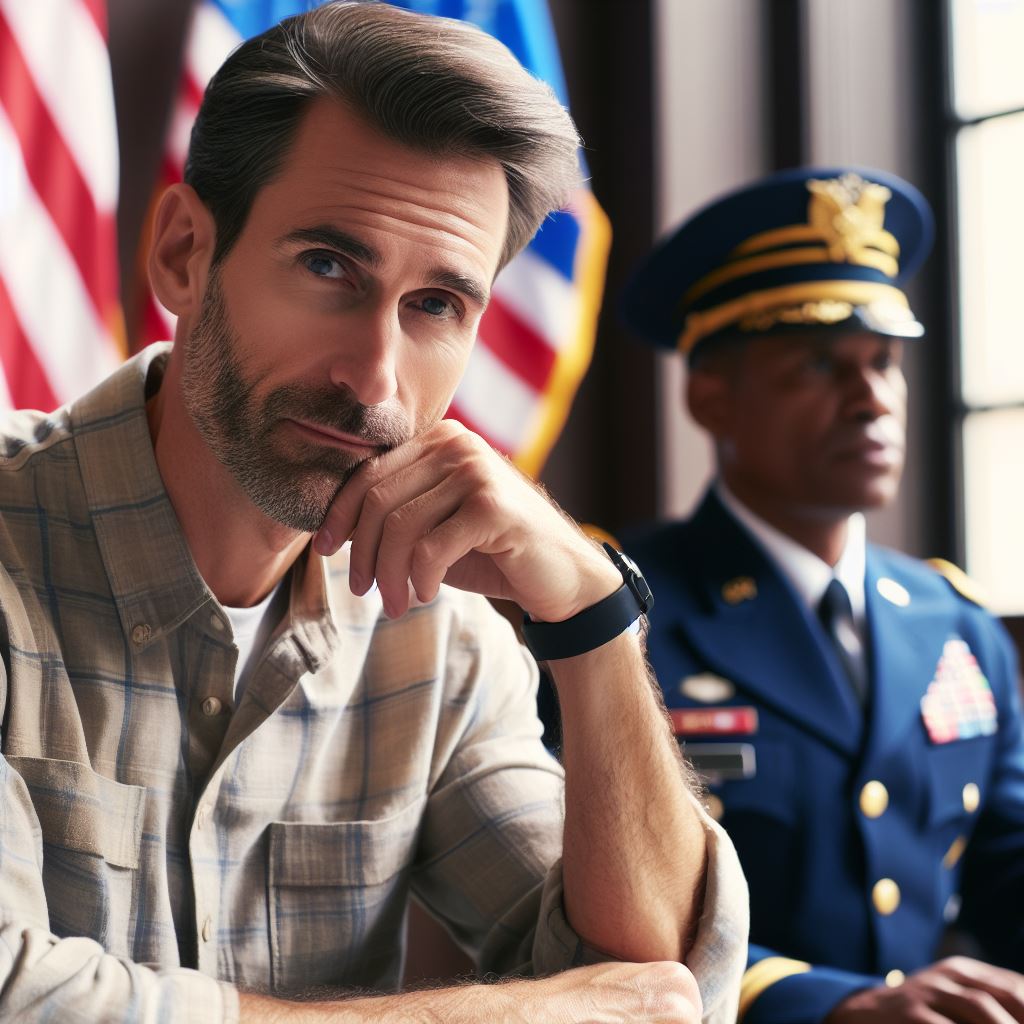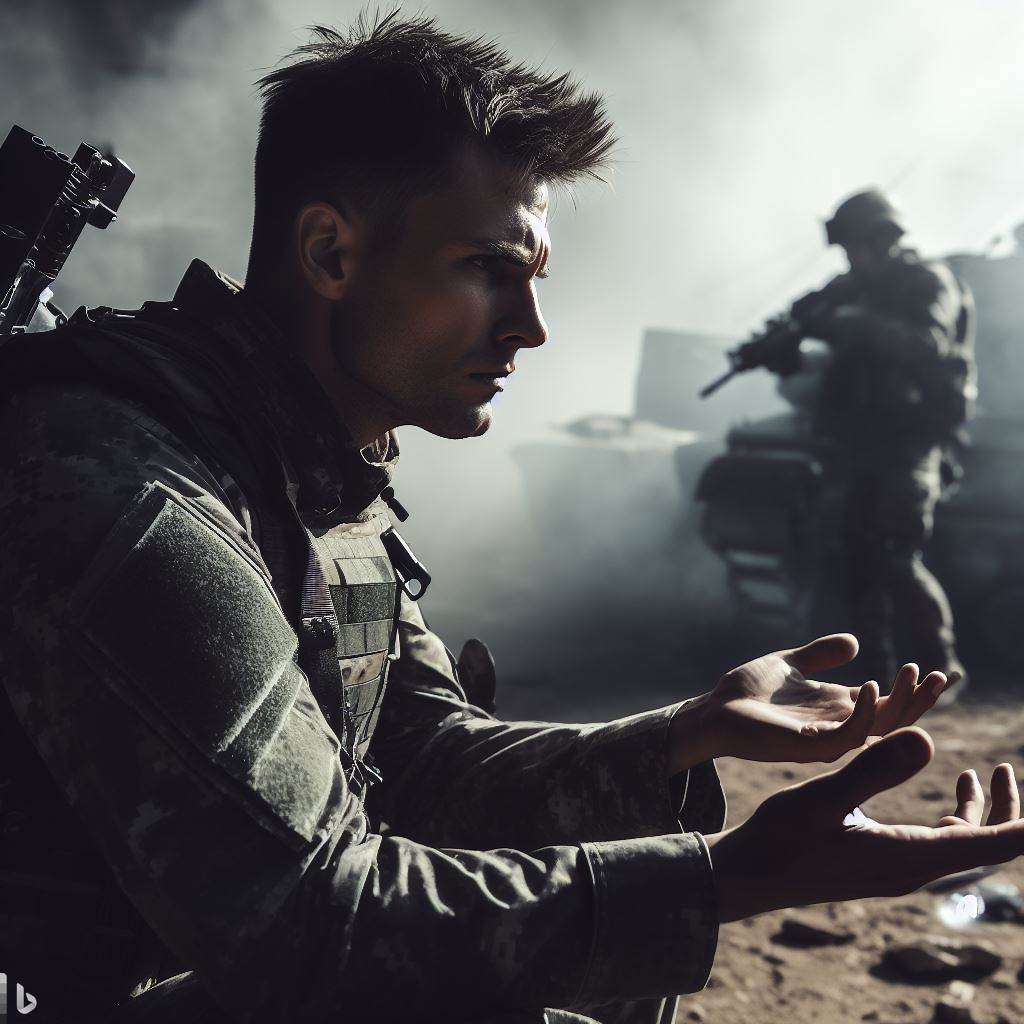Introduction
Military academies in the USA play a crucial role in training future leaders.
These academies provide comprehensive education and training to prepare students for leadership positions in the military.
Military academies are known for their rigorous academic curriculum and disciplined environment.
They instill values such as honor, integrity, and discipline in their students.
Graduates from these academies go on to serve in various branches of the military and hold leadership positions.
Military academies play a crucial role, shaping the future leaders of the country’s armed forces with undeniable significance.
These academies produce individuals who are not only academically competent but also possess the necessary skills and qualities to lead.
The training received at military academies prepares students for the challenges they may face in their future military careers.
These academies design education to cultivate critical thinking, problem-solving, and decision-making skills in students.
Additionally, military academies provide physical training, teaching students the importance of fitness and discipline.
The strict discipline and rigorous training instill a strong sense of responsibility and resilience in the cadets.
Military academies also focus on character development, emphasizing the values of integrity, loyalty, and selflessness.
The graduates of military academies often go on to become influential leaders not only in the military but also in various other fields.
Their experiences at the academies shape them into well-rounded individuals with a strong sense of duty and a commitment to serving their country.
In conclusion, military academies in the USA are essential institutions for grooming future leaders who will play a vital role in the country’s defense and security.
History and Background of Military Academies
Establishment of the first military academy in the USA
The establishment of the first military academy in the USA, West Point, marked a significant milestone in the nation’s history.
President Thomas Jefferson recognized the importance of having a dedicated institution to train officers for the United States Army, which was still in its infancy at the time.
He believed that a military academy would ensure the country’s future defense and provide a platform for developing competent military leaders.
Evolution and growth of military academies over time
Over time, the need for military leaders grew as the United States expanded its territory and faced various conflicts.
Establishing in 1819, the United States Naval Academy in Annapolis met the demand for skilled Navy officers.
The Coast Guard Academy and Air Force Academy followed suit, training officers for their respective branches.
Role of military academies in preparing officers for armed forces
Military academies play a crucial role in preparing officers for the armed forces.
They offer comprehensive education, including rigorous academic instruction, military training, and character development.
The combination of these elements aims to produce well-rounded leaders who possess not only the necessary technical knowledge but also strong leadership qualities and ethical values.
Discipline is a key aspect of military academy education, with strict adherence to rules and regulations.
Physical fitness is also highly emphasized, with cadets participating in rigorous physical training to build endurance, strength, and resilience.
Moreover, military academies instill the importance of teamwork, as cadets engage in various group activities and exercises where cooperation and collaboration are essential.
Graduates of military academies are well-prepared to serve their country in the armed forces.
They possess the skills, knowledge, and values required to lead in challenging and demanding environments.
Their rigorous training and education enable them to excel in positions of authority and responsibility, shaping them into effective military leaders.
The impact of military academies on the armed forces cannot be underestimated, as they continue to produce future leaders who are ready to protect and defend the nation.
Selection Process
Eligibility criteria and requirements for admission
- Applicants must be U.S. citizens.
- Age requirements vary depending on the academy: 17-23 for West Point, 17-22 for the Naval Academy and 17-25 for the Air Force Academy.
- High school diploma or equivalent is mandatory.
- Strong academic record with a focus on math, science, and English.
- Letters of recommendation from teachers, coaches, or community leaders.
- Personal essays expressing motivation and commitment to serve in the military.
- Physical fitness test including push-ups, sit-ups, and a 1-mile run.
- Medical examination to assess the candidate’s physical and mental health.
- Interview with selection committee members to evaluate the candidate’s character and leadership potential.
- Demonstration of good moral character and disciplinary record.
Competitive nature of the selection process
The selection process for military academies is highly competitive due to limited seats and high demand.
- Each academy receives thousands of applications but admits only a fraction of them.
- Acceptance rates range from 8% to 20%, depending on the academy and year.
- Candidates are evaluated based on a holistic review of their academic, physical, and leadership qualities.
- Academies give preference to candidates with outstanding achievements in academics, sports, and extracurricular activities.
- Participation in community service and leadership positions is highly valued.
Overview of physical fitness and academic qualifications
Military academies place great importance on physical fitness and academic qualifications.
- Candidates must meet minimum physical fitness standards, including agility, endurance, and strength.
- Academies require candidates to pass a Physical Aptitude Examination (PAE) to evaluate their physical capabilities.
- Academic qualifications include a solid foundation in math, science, and English.
- High GPA, class rank, and standardized test scores are considered for admission.
- Candidates with honors courses, Advanced Placement (AP) classes, or International Baccalaureate (IB) programs have an advantage.
- Participation in extracurricular activities, such as team sports, clubs, or leadership roles, is also taken into account.
Basically, the selection process for military academies in the USA is rigorous and highly competitive.
Eligibility criteria and requirements, including academic qualifications and physical fitness, play a crucial role in determining admission.
The process aims to select individuals who demonstrate exceptional potential to become future leaders in the military.
Read: Networking Opportunities for Security Professionals in the USA
Curriculum and Training
Overview of academic programs offered at military academies
- Military academies provide a comprehensive curriculum that combines academic subjects and military training.
- The academic programs include a wide range of disciplines such as science, technology, engineering, and humanities.
- Students receive a rigorous education that prepares them for future careers in the military or civilian sector.
- The faculty consists of highly qualified professors who are experts in their respective fields.
- Class sizes are small, allowing for personalized attention and close interaction between students and faculty.
Emphasis on leadership development and character building
- Military academies recognize the importance of developing strong leadership qualities in their cadets.
- Leadership classes and training programs are integrated into the curriculum to nurture leadership skills.
- Cadets participate in various leadership roles and responsibilities, both within the academy and during military training exercises.
- Character building is an essential component of the curriculum, focusing on ethical values, honor, and integrity.
- Cadets are expected to uphold a code of conduct that reflects the highest moral standards.
Integration of military training and academic coursework
- Military academies combine military training with academic coursework to provide a unique learning experience.
- Cadets participate in physical training, military discipline, and tactical exercises alongside their academic studies.
- Military training reinforces the principles of leadership, teamwork, and problem-solving taught in the classroom.
- These integrated experiences help cadets develop a well-rounded skill set and adaptability in various situations.
- Academic coursework and military training mutually support each other, creating a cohesive educational environment.
The curriculum and training at military academies go hand in hand to shape future leaders capable of making critical decisions, displaying strong character, and leading with integrity.
These institutions prepare graduates for military and civilian roles through comprehensive academic programs and rigorous military training.
Read: A Day in the Life of a U.S. Army Soldier: Real Stories

Campus Life and Culture
Description of the Unique Environment at Military Academies
Military academies provide a unique environment where students are immersed in a disciplined and structured lifestyle.
These institutions foster a strong sense of camaraderie, duty, and honor, shaping future leaders.
Constantly immersed in a community of like-minded peers, students embody a passion for service and excellence.
The atmosphere prioritizes a strong work ethic, integrity, and goal achievement commitment.
Military academies create an environment that promotes personal growth, leadership development, and academic excellence.
Daily Routines and Discipline at the Academies
Military academy life enforces strict daily routines, with early mornings for physical training and formation.
Students must wear uniforms, maintaining grooming standards for discipline.
They attend classes, drills, and rigorous physical activities, emphasizing time management and structured schedules to instill discipline and prioritize responsibilities.
Military academies enforce a code of conduct to ensure accountability and maintain a professional environment.
Extracurricular Activities and Opportunities for Personal Growth
Beyond academics and military training, military academies offer a diverse range of extracurricular activities.
Students can participate in varsity and intramural sports, clubs, and leadership organizations.
Transform Your Career Today
Unlock a personalized career strategy that drives real results. Get tailored advice and a roadmap designed just for you.
Start NowThese activities provide opportunities for personal growth, fostering teamwork, and enhancing leadership skills.
Academies often organize cultural events, guest speakers, and community service initiatives.
Students are encouraged to engage in extracurricular activities that align with their interests and goals.
These opportunities allow cadets to develop lifelong friendships, network, and expand their horizons.
In essence, campus life and culture at military academies are distinct, promoting a disciplined and structured lifestyle.
From the unique environment to the daily routines and extracurricular activities, these institutions shape future leaders.
Military academies provide a holistic education that prepares students for a successful military career and beyond.
Read: Balancing Vigilance and Courtesy: A U.S. Security Guard Challenge
You Might Also Like: Military Medics: Unsung Heroes on the Frontline
Notable Alumni and Success Stories
Highlighting successful individuals who graduated from military academies
- Military academies have produced numerous successful individuals who excel in various fields.
- These alumni serve as a source of inspiration and motivation for future cadets.
- Graduates from military academies are known for their strong leadership skills and discipline.
Illustrating the impact of military academy education on career paths
- The rigorous training and education provided by military academies shape the career paths of their graduates.
- Military academy education instills values like loyalty, duty, and honor, which greatly impact their future endeavors.
- The discipline and leadership skills learned at military academies open doors to a wide range of career opportunities.
Examples of notable alumni serving in prominent positions
- General David Petraeus, a West Point graduate, served as the Director of the CIA.
- Admiral Michelle Howard, a Naval Academy alumna, became the first female four-star admiral in the U.S. Navy.
- Lieutenant General Robert Caslen, a West Point graduate, currently serves as the President of the University of South Carolina.
- Major General Peggy Combs, a West Point alumna, served as the Commanding General of the U.S. Army Cadet Command.
- Vice Admiral Rodney Rempt, a Naval Academy graduate, held various leadership positions in the U.S. Navy.
- Major General James McConville, a West Point graduate, is the current Chief of Staff of the U.S. Army.
All in all, military academies in the USA have produced notable alumni who have demonstrated great success and leadership in their respective fields.
These individuals serve as role models for future cadets, highlighting the impact of military academy education on their career paths.
The rigorous training and instilled values contribute to their achievements in prominent positions within the military and beyond.
Read: Veterans Transitioning to Security Roles: A Guide for the U.S. Market
Discover More: US Police Officers & the Law: Rights & Obligations
Challenges and Rewards of attending a military academy
Discussing the physical and mental challenges faced by cadets
Attending a military academy presents cadets with a plethora of physical and mental challenges.
- First and foremost, cadets undergo rigorous physical training to build their strength, endurance, and discipline.
- They have to navigate demanding obstacle courses, endure long-distance runs, and participate in grueling missions.
- The physical challenges are designed to push cadets to their limits and test their ability to perform under pressure.
- Furthermore, the mental challenges are equally demanding. Cadets must excel academically, mastering various subjects.
- They are often required to balance difficult coursework with their military obligations and responsibilities.
- The pressure to maintain high grades while fulfilling military duties can be overwhelming.
- Cadets also face mental challenges in the form of leadership training. They are taught to make tough decisions with limited information.
- Developing critical thinking and problem-solving skills is crucial for cadets to become effective leaders.
Highlighting the sense of camaraderie and pride among cadets
One of the most rewarding aspects of attending a military academy is the strong sense of camaraderie and pride among cadets.
- Living and training together for four years creates a unique bond between cadets.
- They rely on each other for support, forming lifelong friendships built on trust and shared experiences.
- Cadets tackle challenges together, fostering a sense of unity and solidarity.
- They push each other to excel and motivate one another during difficult times.
- The camaraderie among cadets extends beyond graduation, as they continue to support each other throughout their military careers.
- Additionally, attending a military academy instills a deep sense of pride in cadets.
- They take pride in their dedication to serving their country and upholding the values of honor, integrity, and duty.
- The sense of pride motivates cadets to strive for excellence in everything they do.
Personal and professional benefits gained from attending a military academy
Attending a military academy offers cadets numerous personal and professional benefits that shape their future success.
- Firstly, the intense physical and mental training builds resilience and mental toughness.
- Cadets learn to overcome obstacles and adapt to challenging environments.
- These qualities serve them well in their future military careers and in life beyond the military.
- The academies also provide a top-notch education, preparing cadets for a wide range of professional opportunities.
- Cadets gain knowledge in fields such as engineering, leadership, and strategic planning.
- They develop strong problem-solving and decision-making skills, which are highly valuable in any career.
- Furthermore, attending a military academy opens doors to a vast network of alumni and mentors.
- Cadets have access to influential individuals who can provide guidance and support throughout their careers.
- Lastly, attending a military academy comes with a strong sense of duty and service to the nation.
- Cadets graduate with a deep understanding of the sacrifices required to protect and defend their country.
- Instilling a sense of responsibility, they actively lead and serve with honor and integrity.
In a nutshell, attending a military academy presents cadets with numerous challenges, both physical and mental.
However, the rewards are equally substantial, including a sense of camaraderie and pride, as well as personal and professional benefits that shape their future success.
Despite the demanding nature of military academy life, the experiences gained and the values instilled make it a transformative journey for those who choose this path.
Find Out More: Tools & Tech: The Modern Police Officer’s Toolkit
Conclusion
Significance of Military Academies
The indelible role of military academies in shaping future leaders cannot be overstated.
These institutions, characterized by rigorous education and immersive training, instill discipline, resilience, and a profound sense of duty in their cadets.
Encouragement for Consideration
To our readers, we extend a compelling invitation to contemplate the transformative potential that military academy education holds.
Beyond academic excellence, it fosters character, camaraderie, and a unique skill set that resonates in various professional spheres.
Final Thoughts on Impact
As we conclude, it is essential to acknowledge the broader impact of military academies on nation-building.
The leaders emerging from these institutions not only contribute to the defense forces but also embody the values that strengthen the very fabric of our nation.
Their dedication, forged in the crucible of military education, leaves an enduring mark on the trajectory of our collective future.
Transform Your Career Today
Unlock a personalized career strategy that drives real results. Get tailored advice and a roadmap designed just for you.
Start Now[E-Books for Sale]
The Big Book of 500 High-Paying Jobs in America: Unlock Your Earning Potential
$19.99 • 500 High-Paying Jobs • 330 pages
Explore 500 high-paying jobs in America and learn how to boost your career, earn more, and achieve success!
See All 500 High-Paying Jobs of this E-Book
1001 Professions Without a Degree: High-Paying American Jobs You Can Start Now
$19.99 • 1001 Professions Without a Degree • 174 pages
Discover 1001 high-paying jobs without a degree! Unlock career tips, skills, and success strategies for just $19.99!




